19 Jul 2025
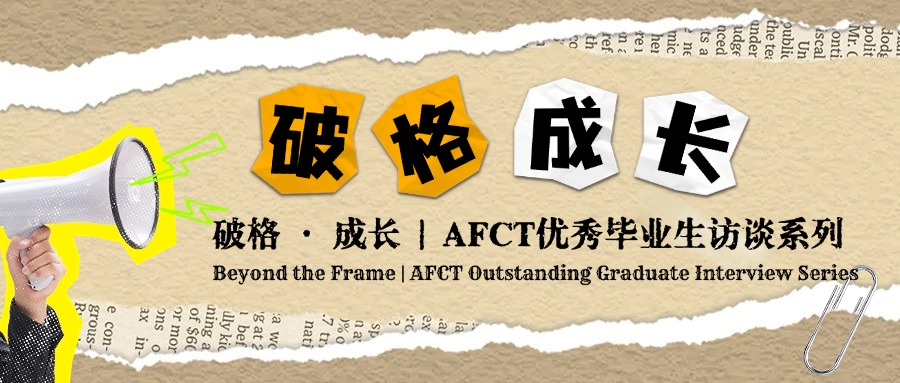
In this era of light, motion, and imagination, graduates from the Academy of Film and Creative Technology at Xi’an Jiaotong-Liverpool University are stepping boldly onto the global stage.
With creativity and determination, they have secured offers from some of the world’s leading art and media institutions— including University of Cambridge, Columbia University, University of Cambridge, the American Film Institute, Chapman University, Loyola Marymount University, University of the Arts London, Glasgow School of Art, School of Visual Arts, Goldsmiths, Teesside University, the London School of Economics and Political Science, University College London, University of Edinburgh and the University of Manchester, and more—spanning fields such as film production, animation, game design, communication and cultural studies, interaction design, and computer arts.
In the Beyond the Frame interview series, we feature outstanding students from our four key programmes: Digital Media Arts, Filmmaking, TV Production, and Arts, Technology and Entertainment.
How did they find their paths, shape their portfolios, and win global recognition? The stories of their growth and choice are waiting to be discovered.
1. Yifei Jiang
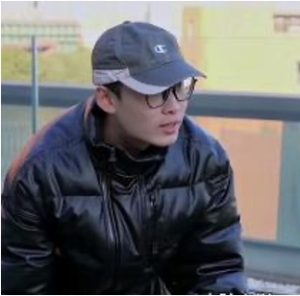
Name: Yifei Jiang
Programme: Digital Media Arts
Received offers:
University of Edinburgh--Design and Digital Media
University of Bristol--Digital Media Innovation
University of Southampton--Creative Technologies
Goldsmiths, University of London--Computational Arts
Q&A:
- What inspired you to choose this programme in the first place?
-
My choice of major has always been driven by personal interest. I previously studied architectural design, and I have long been passionate about both design and creative media. I find the field of digital media particularly appealing due to its creative freedom, broad scope for expression, and strong sense of entertainment. The curriculum in Digital Media Arts aligns closely with all of my interests, and the pathways for further study are diverse—ranging from interaction design and game development to multimedia entertainment. - In your view, what stands out the most about your programme? Any favourite modules or lecturers?
-
One of the most distinctive features of my undergraduate programme is its flexibility in allowing students to choose their learning direction and develop a wide array of skills. We have access to studios for developing and constructing installations, as well as workstations equipped with RTX 4090 graphics cards for high-performance production work. All of our instructors and technical staff are highly supportive and dedicated to helping students explore their specialised areas. I have genuinely enjoyed every course and appreciate all the teaching staff. - Could you share some tips or reflections on your postgraduate application journey?
- For my postgraduate applications, I targeted universities in the UK and Hong Kong. My goal is to pursue a Master of Science degree, and I selected universities based on both institutional and subject rankings. Notably, the MSc Design and Digital Media at the University of Edinburgh is the only in-person MSc programme offered by the Edinburgh College of Art, which makes it particularly attractive to me. As such, I tailored my portfolio to highlight skills in programming, game engines, and prototype development. I believe that once a target programme is set, one must pursue it with full commitment—without a strategic and focused preparation, an offer is unlikely.
- What are your academic or career plans for the future?
-
Looking ahead, I plan to apply for a PhD and eventually become an independent interaction designer. I am already preparing for doctoral applications and actively seeking opportunities to work on new projects. - Sum up your four years at XJTLU in three key words – and don’t forget to share a piece of advice for your juniors!
-
Enjoyable, Cheerful, Bustle I hope that my juniors can experience the charm of different learning directions of digital media in their freshman and sophomore years, find their own interests before their junior year, and then start from their interests and enjoy the joy of continuous experimentation, overthrow, and restart in the process of generating creativity. Try not to develop the habit of having inspiration only at night, daytime is a more sustainable creative time.
pictures of works:



2.Jingqiao Ma
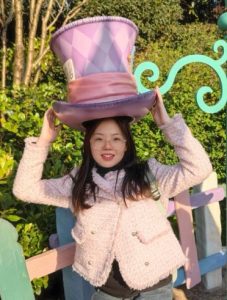
Name: Jingqiao Ma
Programme: Filmmaking
Received offers:
UCL--Ethnographic and Documentary Film
Edinburgh University--Directing
University of Edinburgh--Film Study
University of Manchester--Film Study
University of Bristol--Film and Television
City University of Hong Kong--Creative Media
University of Southampton--Film Studies
University of Leeds--Film Studies
Q&A:
- What inspired you to choose this programme in the first place?
-
I was studying Biostatistics in my first year, but in my second year, I decided to switch to Filmmaking. The reason behind this decision was quite simple: I’ve always had a strong interest in films and TV shows, while the process of studying science felt somewhat dull to me. After many years of studying in the science field, I realized that if I stayed in this area, I would probably be stuck in the same thinking framework. I wanted to step out of that circle and try something completely new. After switching to Filmmaking, the experiences I've had over the past few years have only strengthened my belief that I made the right choice. - In your view, what stands out the most about your programme? Any favourite modules or lecturers?
-
I believe the most prominent feature of this programme is that it allows for all-round development and self-expression. Unlike other fields, Filmmaking offers numerous practical opportunities with minimal restrictions, enabling individuals to fully showcase their creativity and talents. Film production is inherently a team effort, providing many opportunities for communication, collaboration, and teamwork with peers. Additionally, we also engage in essay writing and public speaking training, which have significantly enhanced my overall abilities. I feel that through this programme, I have not only improved my professional skills but also made great progress in personal expression and teamwork. My favorite course is FTA220 because it requires everyone to shoot a documentary. This course is full of challenges, as shooting a documentary is full of uncertainties, and I can't predict what will happen next. It's precisely this sense of the unknown that makes it so interesting, and capturing great shots brings me a lot of joy. - Could you share some tips or reflections on your postgraduate application journey?
-
During the application process, be brave to try and manage your time wisely. Many programmes require a portfolio, so it's recommended to start preparing it in advance. - What are your academic or career plans for the future?
-
I'm not sure, but if possible, I would like to pursue a PhD after my Master's and become a lecturer at a university in the future. - Sum up your four years at XJTLU in three key words – and don’t forget to share a piece of advice for your juniors!
-
Freedom, Fulfillment, Growth. University life is full of challenges and opportunities, and the most important thing is to manage your time wisely. Seize every opportunity and do what you want to do directly.
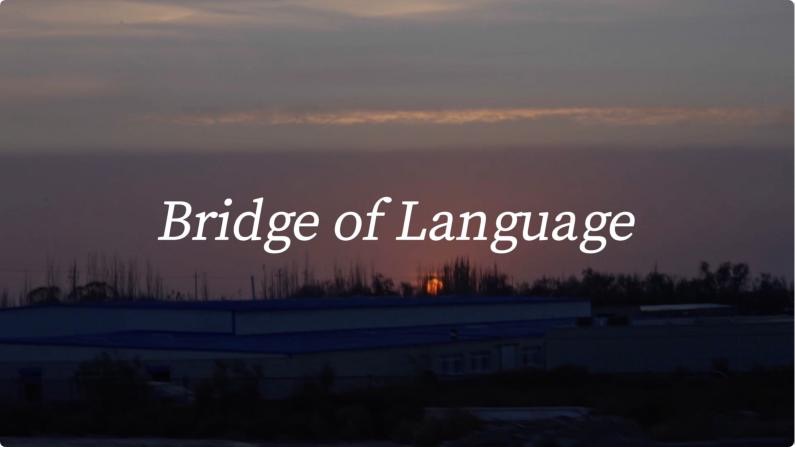
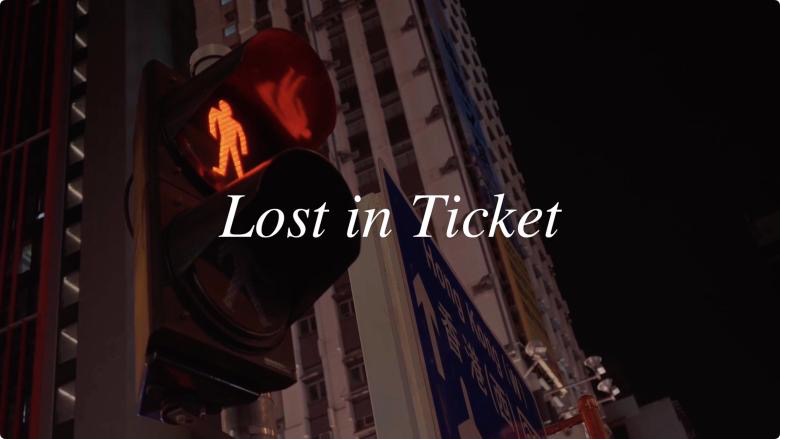
3. Chunqin Fu

Name: Chunqin Fu
Programme: TV Production
Received offers:
University of Manchester--Film Studies
University of Sydney--Media Practice
University of Bristol--Film and Television
University of Queensland--Communication
Q&A:
- What inspired you to choose this programme in the first place?
-
I originally chose this programme because I love the film and television industry. I've been running my own bilibili account since high school, and I like to upload some of the anime mashups I usually edit. - In your view, what stands out the most about your programme? Any favourite modules or lecturers?
-
I think the most outstanding feature of TVP should be the opportunity to produce TV programs, together with my classmates, in the studio for three semesters. I think it is a course that tests the spirit of cooperation, and it is still a great sense of achievement to see the work that we have done together screened in the theaters at the end of the semester. I really appreciate Dr. Stephen in the programme, he is really serious and responsible. He was my fyp advisor this semester, and every time I talked to him about fyp, he would give me very detailed advice, and he would also recommend literature that I needed to read, which helped me a lot. - Could you share some tips or reflections on your postgraduate application journey?
-
I don't think you should completely count on agents when applying for graduate school, because from my own experience and those of people close to me, many agents are not particularly reliable. Therefore, you must do some research and understanding on your own, and take responsibility for your own graduate school application. Furthermore, believe in your own abilities! Be brave and apply forward! - What are your academic or career plans for the future?
-
I hope to practice my professional skills in the coming year of my master's studies, and then return to my country to find a job. - Sum up your four years at XJTLU in three key words – and don’t forget to share a piece of advice for your juniors!
-
Growth, Harvest, Youth Limited Four years of university is really a wonderful time in life, we should not forget to live a good time in the busy study life! Certainly! Don't forget to finish your graduation project and don't let your four years leave you with regrets~ 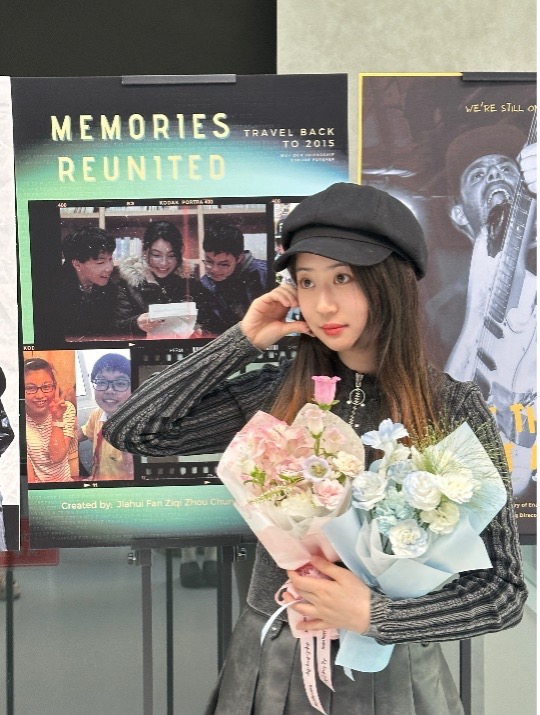
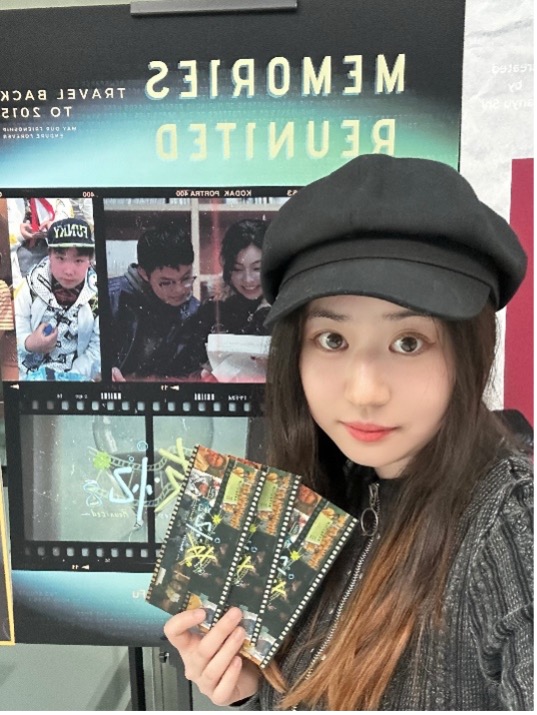
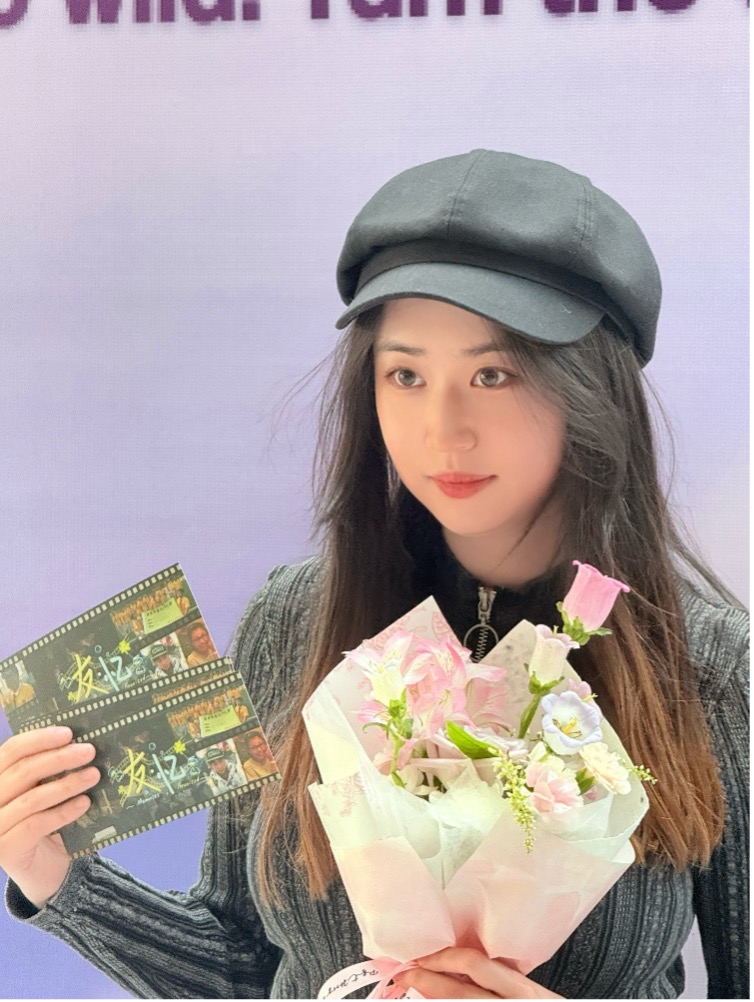
4. Yahan Lai
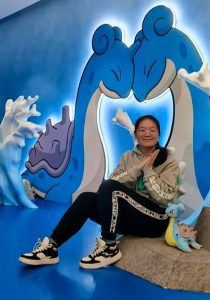
Name: Yahan Lai
Programme: Arts, Technology and Entertainment with Contemporary Entrepreneurialism
Received offers:
University of Texas at Dallas--Game Development
I'm Yahan Lai, a 4th year student at the Academy of Film and Creative Technology in the Arts, Technology and Entertainment with Contemporary Entrepreneurialism programme. I am passionate about ACGN culture, I like to play video games in my spare time, check out related information and chat in discussion communities. Currently, I have received an offer from the University of Texas at Dallas (UT Dallas), specialising in Game Development.
Q&A:
- What inspired you to choose this programme in the first place?
-
A few months before I chose my programme, I learned in an ATE promotional video, which supports the diversity and freedom of students, had established a course related to game development, and I was very excited by this news. I was a pure science student in high school, and I logically chose a general programme in Electrical Engineering before entering my freshman year, and I spent my first year of study in an ordinary way. However, information from ATE made me realize that I might have the opportunity to turn my long-time hobby into a skill within reach, and even a future career. After four years of university study, it is likely that I will embark on the path of competing with many others for the same mundane job, or seeking opportunities to further my education in graduate school in the increasingly rolled-up exam bar. The subjects that I excelled at translating into paper-based knowledge during test-based education were not necessarily suitable as skills for my long-term livelihood. When I was discussing my choice of programme with my parents, they only asked me one thing: What do you really want to do? The idea of becoming a game producer was so cool that I couldn't resist it. That's how I became a member of the ATE. - In your view, what stands out the most about your programme? Any favourite modules or lecturers?
-
ATE is a programme that is difficult to define as a separate direction. For this programme, knowledge of artistic concepts and the ability to implement them into practical skills are both essential. Therefore, after years of working in this programme, I found that I can have both rich creative thinking and hands-on execution, not only designing gameplay, but also programming the game to make it by myself. In my opinion, interdisciplinary integration is the best feature of teaching in this programme. In my university life, Prof. Alvaro and Dr. Myria, the teachers of CAT215 Post Production course, have left me with the most unforgettable and wonderful memories. Most of my peers and I were beginners in the field of post-production editing, and we needed to be taught how to search the official website and download the software. Under the guidance of the two teachers, we received high grades for our final assignments. Even though those works seem juvenile now, it was indeed a very good start. Now, I am proficient in using editing techniques to express my ideas. - Could you share some tips or reflections on your postgraduate application journey?
-
When applying for graduate school in the U.S., except for language scores and GPAs, it is also important to actively communicate with the school to seek help and solve problems, no matter whether it is a graduate school as a target or an undergraduate school in XJTLU. In terms of graduate school application materials, it is best to write to the standards of industry practitioners, and you can highlight your experience in practice and the contribution you can make to the university. - What are your academic or career plans for the future?
-
I applied for a graduate programme in game production at US universities, which is in line with my three years of study in the ATE. Because of the teaching policy of Taicang Campus, I was exposed to a lot of real practitioners in the industry during my undergraduate study, and I also gained some experience in marketing and business. One of the most important game production experiences came from a board game production commission from my EEH tutor, in which I was fortunate enough to be involved and, as a team leader and together with my fellow team members, produced a board game from scratch, which was exhibited at several events inside and outside of the university and attracted a lot of players. It was a hard-earned success and gave me invaluable experience and motivation to continue to excel in this industry. - Sum up your four years at XJTLU in three key words – and don’t forget to share a piece of advice for your juniors!
-
Searching, Breaking, Persisting Finding answers: How do I decide where to go next in my life after getting off the track set for me by compulsory education? Breaking out of the comfort zone of learning: When exposed to the completely unfamiliar knowledge in the field of game development, re-establishing the knowledge system and learning habits, and changing the inertia of thinking from exam-oriented education to the learning of practical skills. Stick to my choice: I have encountered a lot of difficulties in making games independently, but this is the direction I chose for myself, there is no turning back, only overcoming!
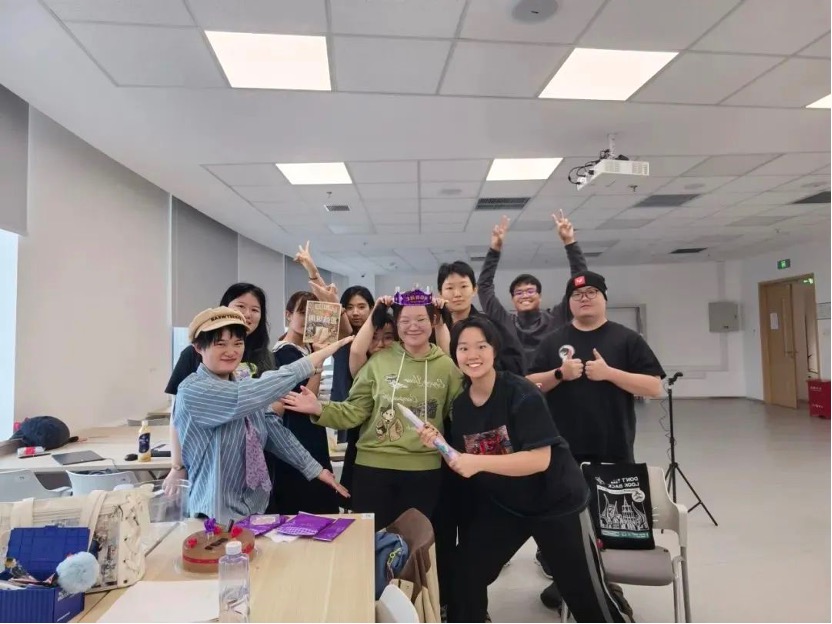
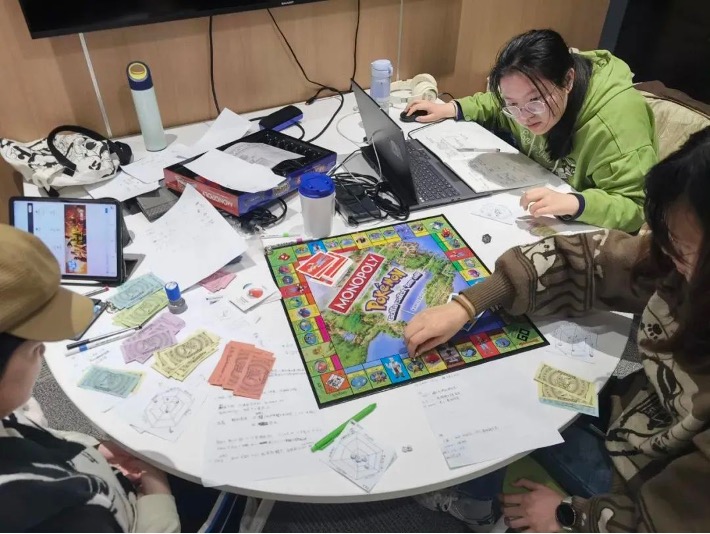
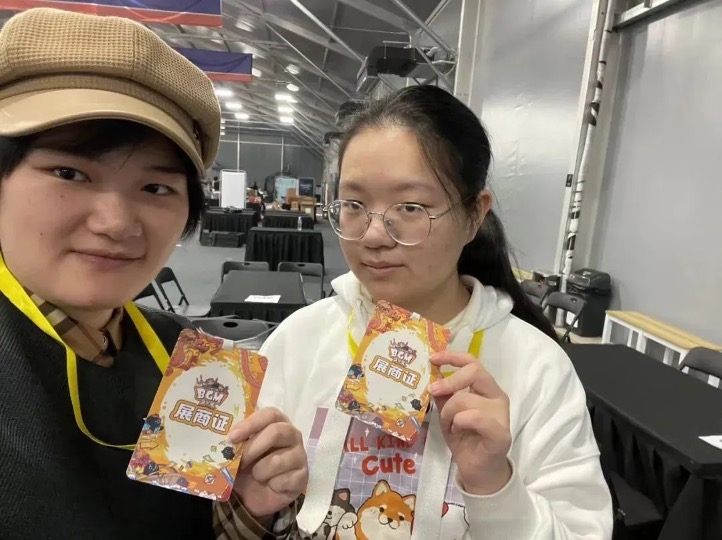
Our heartfelt thanks go to all the students who generously shared their journeys in this feature. Your honesty, courage and creativity are truly inspiring—and will surely light the way for many more to come.
As you move forward from XJTLU to the world, may your talents and passions continue to flourish.
Here's to bold dreams, new chapters, and ever-growing brilliance—beyond the frame.
Contributed by Yuqi Liu
Edited by Wenzhen Li
19 Jul 2025







